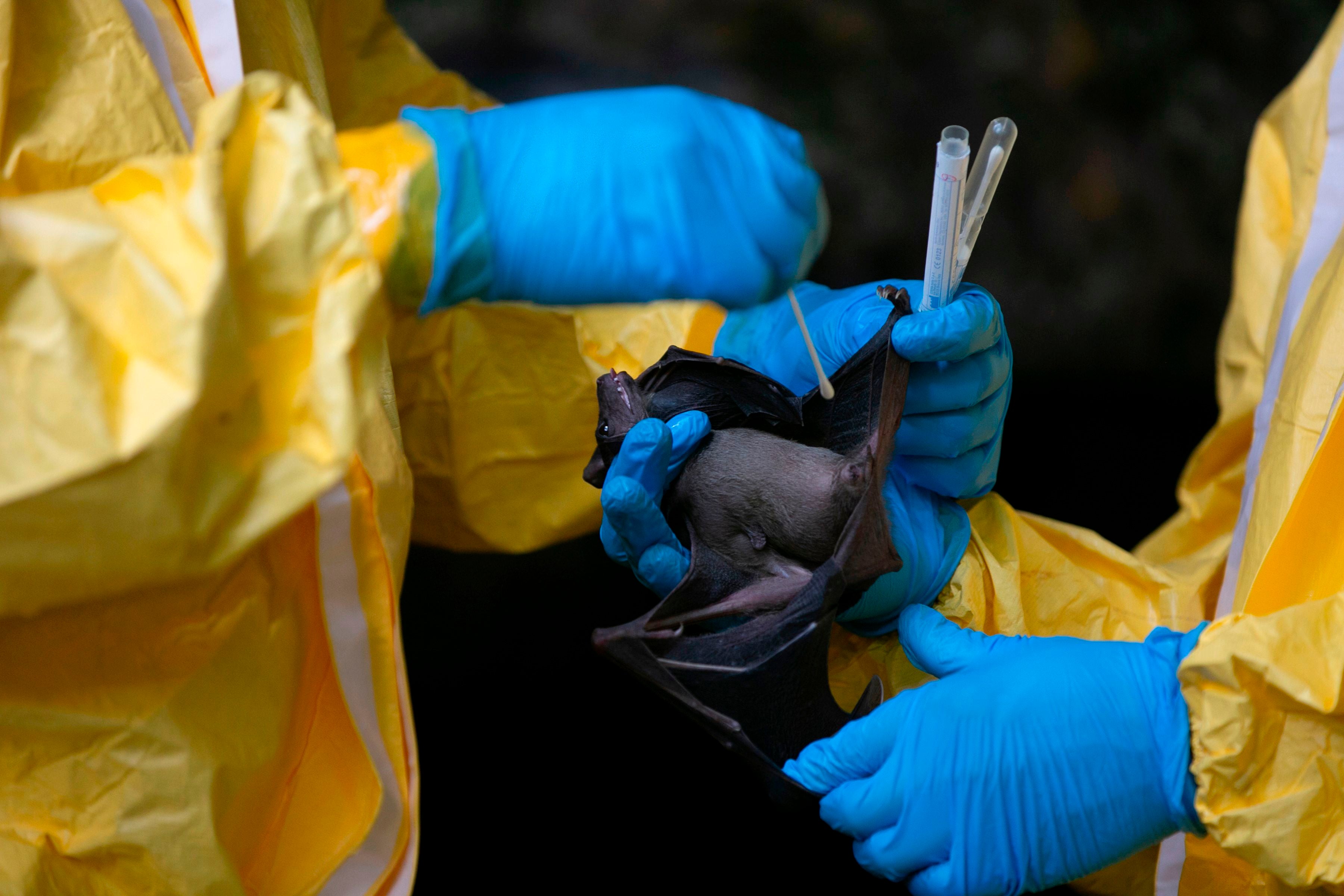WHO team says it should inspect Wuhan bat caves to try to find Covid origins
'If you can find the sources of these lethal viruses you can reduce the contact with those animals,' says animal disease expert

The World Health Organisation (WHO) team investigating the origins of Covid-19 have said they are trying to trace genetic elements of the virus in Wuhan's bat caves.
Peter Daszak, a zoologist and animal disease expert, said the team had been receiving new information about how Covid-19 evolved into a pandemic. He also said “key questions were asked and answered” in an “extremely important” meeting with staff at the Wuhan Institute of Virology, including with its deputy director, Shi Zhengli.
The WHO team has praised the central Chinese city of Wuhan, where the virus was first identified in December 2019, and said there has been a high level of cooperation. However, it cautioned against expecting immediate results from the visit.
Mr Daszak was previously involved in researching the origins of the 2002 Severe Acute Respiratory Syndrome (SARS) and traced its roots to bats living in a cave in the southwest Yunnan province.
He said “similar research” needed to be carried out “if we are going to find the true wildlife origin” of Covid-19.
“That sort of work to find the likely bat source is important because if you can find the sources of these lethal viruses you can reduce the contact with those animals,” he told Reuters.
Mr Daszak also said the team is “looking very intensely” into the possibility that Covid-19 could have been circulating in the community long before it was first identified in Wuhan.
“The real work we are doing here is to trace back from the first cases back to an animal reservoir, and that’s a much more convoluted path, and may have happened over a number of months or even years,” he said.
Although Chinese authorities had not refused any of the teams’s requests to visit facilities or meet with key figures as part of their investigation, Mr Daszak noted that it is “of course impossible to know what you are not being told”.
However, he said the group has so far been “allowed” to do what they have asked.
Investigators were only able to enter Wuhan in January to begin their work after several delays by the Chinese government, which led to concerns that authorities were obstructing the mission in an attempt to reshape the narrative of where the disease originated.
The Wuhan Institute of Virology, which has collected extensive virus samples, faced unproven allegations that it may have caused the original outbreak by leaking the virus into the surrounding community. Former US president Donald Trump claimed in May last year that he had seen evidence to substantiate the allegation, further stroking tensions between Washington and Beijing, who has strongly denied that possibility.
The Chinese government meanwhile has promoted unproven theories that the virus may have originated elsewhere.
Along with the institute, the WHO team that includes experts from 10 nations has visited hospitals, research institutes, a traditional market tied to the outbreak and other sites.
They met with institute researchers and management, experts, vendors, residents and media representatives, the spokesperson for China’s National Health Commission, Mi Feng, told reporters at a briefing Thursday.
It is likely to take years and multiple investigations across the world to confirm the origins of the virus.
Additional reporting by agencies
Join our commenting forum
Join thought-provoking conversations, follow other Independent readers and see their replies
Comments
Bookmark popover
Removed from bookmarks